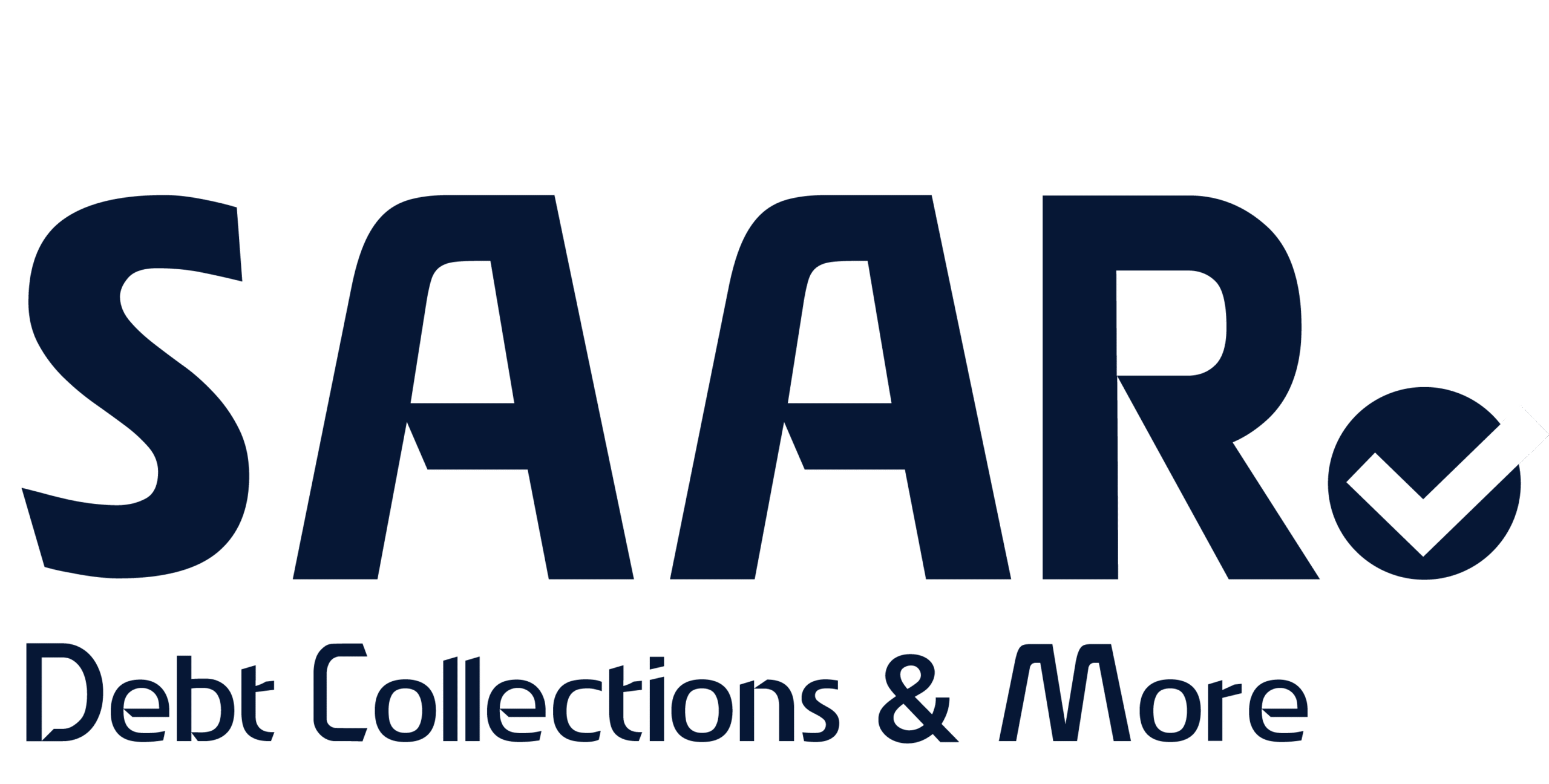الاستفادة من التكنولوجيا لتحصيل الديون بكفاءة
في العصر الرقمي الحالي، أصبحت التكنولوجيا عنصراً محورياً في تعزيز كفاءة وفاعلية عمليات تحصيل الديون. لم تعد المكالمات الهاتفية التقليدية أو الرسائل الورقية وحدها كافية لضمان استرداد الأموال في الوقت المحدد، بل أصبحت الأدوات الرقمية والتحليلات الذكية جزءاً أساسياً من الاستراتيجيات الحديثة. إن تبني التكنولوجيا لا يسهم فقط في زيادة معدلات الاسترداد، بل يحسن تجربة المدينين ويعزز علاقات طويلة الأمد بين الدائن والمدين.
1. قنوات الاتصال الآلية
تلعب التكنولوجيا الحديثة دوراً حيوياً في تحسين التواصل مع المدينين، وتقديم حلول أكثر مرونة وفعالية مقارنة بالطرق التقليدية.
أمثلة عملية:
-
التذكيرات عبر الرسائل النصية القصيرة والبريد الإلكتروني:
يمكن إرسال رسائل تلقائية لتذكير المدينين بالمواعيد النهائية للدفعات أو المبالغ المستحقة. على سبيل المثال، دراسة أظهرت أن التذكيرات النصية الذكية يمكن أن تزيد معدلات الدفع المبكر بنسبة تصل إلى 25% مقارنة بالمكالمات الهاتفية التقليدية. الرسائل النصية القصيرة يمكن أن تكون ودية ومهنية، مما يقلل التوتر ويحفز المدين على اتخاذ الإجراء المطلوب بسرعة. -
روبوتات الدردشة والمساعدون الافتراضيون:
يمكن للمساعدين الافتراضيين المدعومين بالذكاء الاصطناعي التعامل مع الاستفسارات الروتينية على مدار الساعة، مثل الاستعلام عن الرصيد المستحق، شرح خيارات الدفع، أو توجيه المدينين لإكمال إجراءات التسوية. هذا يتيح للموظفين البشر التركيز على الحالات الأكثر تعقيداً، ما يزيد من كفاءة العملية ويقلل التكلفة التشغيلية. -
الرد الصوتي التفاعلي (IVR):
تتيح أنظمة الرد الصوتي التفاعلي للمدينين إمكانية التحقق من حساباتهم، إجراء الدفعات، أو إنشاء خطط دفع مخصصة دون الحاجة للتحدث إلى وكيل مباشر. هذا يساهم في توفير الوقت لكل من الدائن والمدين، ويضمن معالجة أكبر عدد ممكن من الحسابات في وقت قصير.
2. تحليلات البيانات وتقسيم المدينين
تحليل البيانات الذكية أصبح من أهم الأدوات الحديثة لفهم سلوك المدينين وتصميم استراتيجيات مخصصة لكل حالة.
أمثلة عملية:
-
التحليلات التنبؤية:
من خلال تحليل بيانات الدفع السابقة، يمكن للخوارزميات التنبؤ بالمدينين الأكثر احتمالاً للتأخر عن الدفع. على سبيل المثال، يمكن لفِرق التحصيل تركيز جهودها على الحسابات عالية المخاطر، مما يزيد فرص استرداد الديون بنسبة تصل إلى 30% مقارنة بالنهج التقليدي. -
التقسيم إلى شرائح:
تصنيف المدينين حسب الخصائص الديمغرافية، سجل الدفع، أو قيمة الدين، يسمح بتخصيص أساليب الاتصال لكل مجموعة. على سبيل المثال، قد يفضل الشباب التواصل عبر البريد الإلكتروني، بينما يفضل كبار السن المكالمات الهاتفية المباشرة. كما يمكن تصميم عروض خاصة لكل شريحة، مثل تخفيضات لحالات الدفع المبكر.
3. بوابات الدفع عبر الإنترنت وخيارات الخدمة الذاتية
تسهيل عملية الدفع للمدينين يزيد من احتمالية التسوية في الوقت المحدد، ويعزز رضاهم عن الخدمة.
أمثلة عملية:
-
البوابات الإلكترونية:
توفر بوابات الدفع الإلكترونية آلية آمنة للمدينين لمراجعة أرصدتهم، الاطلاع على سجل المدفوعات، وإجراء الدفعات مباشرة عبر الإنترنت في أي وقت. هذا يقلل من الأخطاء ويزيد من سرعة التحصيل. -
خطط الدفع الآلية:
تمكن المدينين من إعداد جداول دفع مخصصة أو دفعات متكررة، مثل اختيار دفع مبلغ ثابت شهرياً حتى استكمال تسوية الدين. هذه الطريقة تساعد المدينين على الالتزام بخططهم المالية وتقليل فرص التأخر عن السداد.
4. الامتثال والأدوات التنظيمية
الامتثال للقوانين والتشريعات أمر حيوي في عمليات تحصيل الديون، والتكنولوجيا توفر حلولاً فعالة لضمان الامتثال وتجنب المخاطر القانونية.
أمثلة عملية:
-
تسجيل ومراقبة المكالمات:
يضمن تسجيل المكالمات مراجعة التفاعلات ومراقبة جودة الأداء، مع توفير دليل قانوني في حال حدوث نزاعات. -
الفحوصات التلقائية للامتثال:
يمكن للأنظمة الكشف عن أي مخالفة محتملة، مثل الاتصال خارج ساعات العمل المسموح بها، وتمنع الانتهاكات غير المقصودة، مما يقلل المخاطر القانونية ويضمن التعامل الأخلاقي مع المدينين.
5. التكامل مع مكاتب الائتمان وخدمات تتبع التخطي
الوصول إلى المعلومات الدقيقة أمر بالغ الأهمية لتحسين استراتيجيات التحصيل.
أمثلة عملية:
-
تقارير الائتمان:
تمكن تقارير الائتمان الشركات من فهم الوضع المالي للمدينين بشكل كامل، وتساعد على تصميم خطط دفع أو تسويات مناسبة للطرفين. -
أدوات تتبع التخطي:
تساعد هذه الأدوات في تتبع المدينين الذين يغيرون عناوينهم أو بيانات الاتصال، مما يمنع دخول الحسابات في حالة سبات طويلة ويزيد فرص الاسترداد الناجح.
6. الذكاء الاصطناعي في اتخاذ القرار
الذكاء الاصطناعي يمكن أن يحدث ثورة في إدارة التحصيل من خلال تحليل البيانات بسرعة واتخاذ قرارات دقيقة.
أمثلة عملية:
-
نماذج تقييم المخاطر:
يمكن للذكاء الاصطناعي تصنيف المدينين وفق درجات المخاطر بناءً على عوامل مثل استقرار الدخل، الديون السابقة، وسجل الدفع. يتيح ذلك لفِرق التحصيل إعطاء الأولوية للحالات عالية الخطورة وتخصيص الموارد بشكل أفضل. -
روبوتات الدردشة للتفاوض:
يمكن لروبوتات الدردشة المدعومة بالذكاء الاصطناعي المشاركة في محادثات التفاوض، تقديم خيارات تسوية وتحليل ردود المدينين، مما يسرع عملية التسوية ويقلل الحاجة للتدخل البشري المكثف.
الخلاصة
توظيف التكنولوجيا في تحصيل الديون لم يعد خياراً، بل أصبح ضرورة استراتيجية لتعزيز الكفاءة وزيادة معدلات الاسترداد. من خلال الاستفادة من قنوات الاتصال الآلية، تحليلات البيانات، بوابات الدفع الإلكترونية، أدوات الامتثال، التكامل مع مكاتب الائتمان، والذكاء الاصطناعي، يمكن للمؤسسات تحسين تجربة المدينين، تقليل الوقت المستغرق في التحصيل، وزيادة رضا العملاء.
إن الهدف ليس مجرد استرداد الأموال، بل إنشاء عملية تحصيل دين شاملة، ذكية، ومرنة، تضمن حفاظ العلاقات الإيجابية مع العملاء وتعزز التعاون بين الدائن والمدين. هذه الاستراتيجيات لا توفر الوقت والموارد فحسب، بل تضمن أيضاً الالتزام بالقوانين والتعامل الأخلاقي مع المدينين، مما يزيد من فرص النجاح على المدى الطويل.







